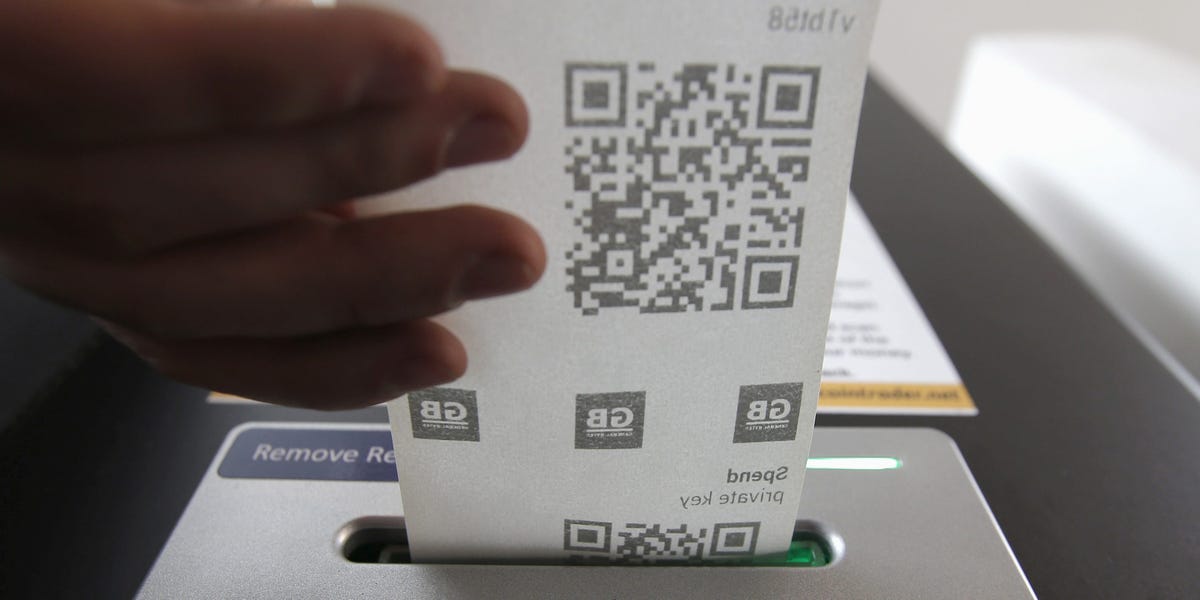
Try our newest merchandise
Plastics and the chemical substances they carry are in all places, from our air, water, and blood to the merchandise we use every single day.
Researchers like Dr. Leonardo Trasande know the sudden locations the place these chemical substances sneak into our lives, just like the receipts you get at grocery shops, fuel stations, eating places, and clothes shops.
“We do not consider thermal paper receipts as plastic, however that shiny coating is a polymer on high,” Trasande, a professor of pediatrics and environmental well being researcher at NYU Langone, instructed Enterprise Insider.
Trasande’s essential criticism about receipts is what that plastic polymer places into human pores and skin.
The place there’s plastic, he added, “chemical substances of concern come alongside for the trip.”
When it is an choice to obtain his receipt by e-mail or textual content, Trasande goes for that.
Poisonous chemical substances on retailer receipts
Receipts are normally fabricated from thermal paper, which is designed to print utilizing heat-sensitive inks. That makes for reasonable and straightforward on-the-spot printing in eating places and companies.
The issue is that this thermal paper normally comprises bisphenols, a category of chemical substances used to fabricate plastics.
REUTERS/Peter Nicholls
Essentially the most well-known bisphenol, known as BPA, has been linked to coronary heart illness, decreased fertility, breast and prostate cancers and, in youngsters, bronchial asthma and neurodevelopmental points. BPA has been phased out of US merchandise over the previous decade, together with receipts.
Nonetheless, research have discovered that many receipt producers have changed the BPA with its cousin BPS, which is banned in Europe to be used in meals containers, thought-about a reproductive toxin by the state of California, and has been related to breast most cancers.
Should you contact a receipt that is coated in BPS, the poisonous chemical can rapidly enter your physique by absorbing by your pores and skin, in line with current analysis.
This 12 months, the nonprofit watchdog Heart for Environmental Well being examined receipts from 32 main retailers and located that touching one for 10 seconds would expose somebody to sufficient BPS to legally require a warning in California. Below the state’s Proposition 65, companies should present warnings about vital exposures to chemical substances that trigger most cancers or reproductive hurt. The CEH delivered a authorized discover to these 32 retailers in April.
“Chemical substances utilized in plastic supplies should be correctly vetted for security,” Trasande mentioned. “Insofar as chemical substances are recognized to be poisonous to human well being, we now have safer options that must be thought-about.”
He known as digital receipts “an necessary optimistic step ahead.”
Microplastics in receipts
Underlying the bisphenols, in fact, is plastic. Although Trasande mentioned there’s way more definitive analysis on the well being results of many chemical substances in plastics, rising science concerning the proliferation of plastics themselves all through the human physique shouldn’t be comforting.
The plastic gadgets that encompass us all in our houses, workplaces, colleges, and even the outside are shedding tiny particles known as microplastics — or, after they get actually tiny, nanoplastics.
These minuscule plastics construct up in our our bodies. They have been present in nearly each human physique tissue researchers have checked, from the mind to the liner of the arteries. Their well being impacts are usually not but clear, however they have been linked to continual irritation, lung and colon cancers, reproductive well being points, and coronary heart assault and stroke threat.
“There are limits to what I can management,” Trasande mentioned. “On the identical time, there are such a lot of steps we will take to cut back our publicity to chemical substances of concern and notably micro- and nanoplastics.”
Declining paper receipts is certainly one of them. On the entire, although, Trasande mentioned the world wants to cut back its plastic manufacturing.
If enterprise as standard continues, plastics manufacturing is predicted to triple by 2060, in line with the United Nations Surroundings Programme.
Trasande mentioned a world plastics treaty would assist. In response to Reuters, the United Nations is ready to renew negotiations for such a treaty in August.

![[Windows 11 Pro]HP 15 15.6″ FHD Business Laptop Computer, Quad Core Intel i5-1135G7 (Beats i7-1065G7), 16GB RAM, 512GB PCIe SSD, Numeric Keypad, Wi-Fi 6, Bluetooth 4.2, Type-C, Webcam, HDMI, w/Battery](https://m.media-amazon.com/images/I/71LYTzK2A8L._AC_SL1500_.jpg)




![[UPDATED 2.0] Phone mount and holder compatible with Samsung Z Fold 2 3 4 5 6 Pixel Fold or Foldable phone | bicycle, treadmill, handlebar, elliptical, stroller, rail, handle, roundbar, golf cart](https://m.media-amazon.com/images/I/51CjGlidGRL._SL1023_.jpg)








